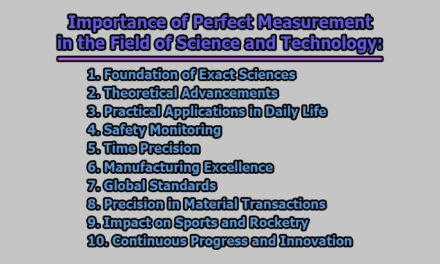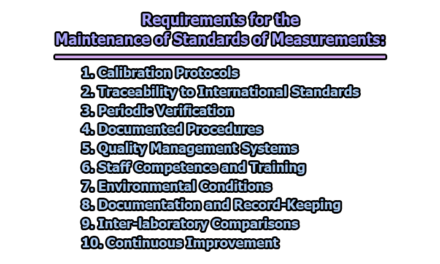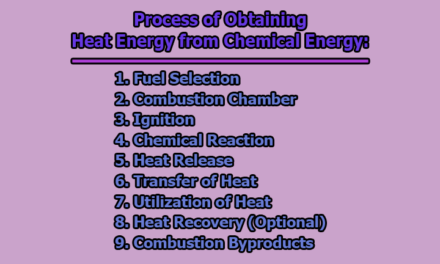Health Benefits of Meditation According to Scientific Studies:
Meditation, a practice rooted in ancient traditions, has gained widespread popularity in contemporary society as a tool for enhancing mental, emotional, and physical well-being. Scientific research has increasingly delved into the impact of meditation on various aspects of health, uncovering a plethora of benefits. This comprehensive exploration aims to elucidate the health benefits of meditation according to scientific studies, shedding light on its effects on the mind and body.
1. Stress Reduction: Meditation has been widely recognized for its profound impact on stress reduction. Numerous studies have consistently shown that engaging in regular meditation practices, such as mindfulness meditation or loving-kindness meditation, can significantly decrease stress levels. One seminal study by Davidson et al. (2003) used neuroimaging techniques to demonstrate that individuals who underwent mindfulness meditation training exhibited changes in brain activity associated with reduced stress responses. The practice encourages individuals to focus their attention on the present moment, promoting a state of calmness and relaxation.
Stress reduction through meditation is not merely subjective; objective measures such as cortisol levels, a hormone associated with stress, have been found to decrease in individuals who practice meditation regularly (Jevning et al., 1978). The cultivation of mindfulness, a key component of many meditation techniques, allows individuals to observe their thoughts and emotions without becoming entangled in them, leading to a more balanced and measured response to stressors.
2. Cognitive Function: Beyond its impact on stress, meditation has demonstrated remarkable effects on cognitive function. Tang et al. (2007) conducted a study that explored the relationship between meditation and cognitive abilities, revealing improvements in attention, memory, and processing speed among individuals who engaged in mindfulness meditation. The practice involves sustained attention to a chosen focal point, such as the breath, which can lead to enhanced cognitive control and heightened awareness.
Additionally, the positive effects of meditation on cognitive function extend to structural changes in the brain. Neuroimaging studies have shown alterations in the density of gray matter, particularly in regions associated with memory and executive function (Hölzel et al., 2011). These findings suggest that meditation may induce neuroplastic changes, providing a scientific basis for the observed improvements in cognitive abilities.
3. Anxiety Alleviation: Anxiety disorders are prevalent in modern society, and the therapeutic potential of meditation in alleviating anxiety has been a subject of considerable research. Hofmann et al. (2010) conducted a meta-analysis of randomized controlled trials and found that meditation-based interventions were effective in reducing symptoms of anxiety. Mindfulness meditation, in particular, has gained recognition for its role in breaking the cycle of anxious thoughts and promoting a non-judgmental awareness of the present moment.
The mechanisms underlying anxiety alleviation through meditation involve changes in neural pathways associated with emotional regulation. Meditation practices encourage individuals to adopt a mindful stance towards their anxious thoughts, reducing reactivity and promoting a sense of inner calm (Goldin & Gross, 2010). As a result, individuals who engage in regular meditation may experience a decrease in the frequency and intensity of anxiety symptoms.
4. Depression Management: Scientific evidence suggests that meditation may play a crucial role in the management and prevention of depressive symptoms. Manocha et al. (2011) conducted a systematic review of studies investigating the effects of meditation on depression and found that various forms of meditation, including mindfulness-based interventions, were associated with significant reductions in depressive symptoms.
The therapeutic benefits of meditation in depression management lie in its ability to modulate neural circuits involved in mood regulation. Meditation practices promote changes in brain activity and structure, particularly in areas associated with emotional processing and self-referential thinking (Farb et al., 2010). By fostering a non-judgmental awareness of thoughts and emotions, meditation equips individuals with effective coping strategies, contributing to the alleviation of depressive symptoms.
5. Enhanced Self-Awareness: Meditation is often described as a journey inward, facilitating a heightened sense of self-awareness. Kabat-Zinn (2003) emphasizes the cultivation of mindfulness as a means of developing awareness of one’s thoughts, emotions, and bodily sensations. Through practices such as body scan meditation or mindful breathing, individuals learn to observe their internal experiences without attachment or judgment.
Research on meditation and self-awareness highlights the role of the default mode network (DMN) in the brain, a network associated with self-referential thinking and mind-wandering. Studies using neuroimaging techniques have demonstrated that meditation can induce changes in DMN activity, leading to a reduced focus on self-referential thoughts (Brewer et al., 2011). This shift in awareness allows individuals to detach from negative thought patterns, fostering a more balanced and objective perspective on their inner experiences.
6. Improved Sleep Quality: Meditation has been associated with improvements in sleep quality and the management of insomnia symptoms. Black et al. (2015) conducted a meta-analysis that revealed mindfulness meditation’s positive effects on sleep parameters, including sleep duration, efficiency, and overall sleep quality. Meditation practices, particularly those emphasizing relaxation and mindfulness, can create a conducive mental environment for improved sleep.
The mechanisms underlying the connection between meditation and sleep involve the activation of the parasympathetic nervous system, leading to a state of relaxation. Mindfulness meditation, in particular, encourages the release of tension and promotes a calm mental state, making it an effective tool for individuals struggling with sleep disturbances (Ong et al., 2014). Incorporating meditation into bedtime routines may thus offer a holistic approach to enhancing sleep quality.
7. Pain Management: Meditation has emerged as a complementary approach in pain management, offering relief for both chronic and acute pain conditions. Cherkin et al. (2016) conducted a randomized controlled trial that demonstrated the efficacy of mindfulness meditation in reducing pain severity and improving physical function among individuals with chronic lower back pain. Meditation techniques, such as focused attention and body scan meditation, help individuals develop a non-reactive awareness of pain sensations.
The analgesic effects of meditation are thought to involve the modulation of pain perception in the brain. Neuroimaging studies have shown that meditation can alter the brain’s response to pain stimuli, leading to changes in pain-related brain regions (Zeidan et al., 2011). Moreover, mindfulness-based approaches teach individuals to relate to pain with acceptance rather than resistance, fostering a psychological resilience that contributes to improved pain coping mechanisms.
8. Blood Pressure Regulation: High blood pressure is a significant risk factor for cardiovascular diseases, and meditation has shown promise in contributing to blood pressure regulation. Rainforth et al. (2007) conducted a meta-analysis of studies investigating the effects of meditation on blood pressure and found that various meditation techniques were associated with significant reductions in both systolic and diastolic blood pressure.
The physiological mechanisms underlying blood pressure regulation through meditation involve the relaxation response, characterized by decreased heart rate, reduced oxygen consumption, and vasodilation (Benson et al., 1974). Mindfulness meditation, in particular, has been linked to improvements in endothelial function, contributing to the dilation of blood vessels and supporting cardiovascular health (Paul-Labrador et al., 2006). Regular meditation practice may thus serve as a non-pharmacological approach to blood pressure management.
9. Immune System Boost: Meditation has been linked to enhanced immune system function, potentially bolstering the body’s ability to defend against infections and diseases. Davidson et al. (2003) conducted a study that demonstrated increased antibody production in individuals who underwent mindfulness meditation training. The practice of meditation appears to modulate the activity of immune cells, such as natural killer (NK) cells and lymphocytes, which play crucial roles in immune responses.
The stress-reducing effects of meditation contribute significantly to its immunomodulatory effects. Chronic stress is known to suppress immune function, and by mitigating stress, meditation indirectly supports immune health (Cohen et al., 2012). Additionally, the mindfulness component of meditation may influence immune function through the regulation of inflammatory pathways, further contributing to overall immune system resilience (Bower et al., 2015).
10. Neuroplasticity: Meditation has been associated with changes in brain structure and function, highlighting its potential role in promoting neuroplasticity. Tang et al. (2015) conducted a meta-analysis that revealed structural changes in brain regions associated with attention, sensory perception, and internal thoughts in individuals who practiced meditation regularly. These changes suggest that meditation may induce adaptive modifications in neural pathways.
The concept of neuroplasticity refers to the brain’s ability to reorganize and adapt in response to experiences and environmental influences. Meditation, particularly mindfulness meditation, involves focused attention and heightened awareness, which may contribute to synaptic plasticity and the formation of new neural connections (Hölzel et al., 2011). These structural changes are not only associated with cognitive improvements but also with emotional regulation and overall mental well-being.
The heightened self-awareness cultivated through meditation not only contributes to emotional well-being but also enhances interpersonal relationships by promoting authentic and mindful communication (Shapiro et al., 2006). As individuals become more attuned to their thoughts and emotions, they gain a deeper understanding of themselves, fostering personal growth and self-acceptance.
11. Emotional Regulation: Meditation is closely linked to emotional regulation, offering individuals tools to navigate and manage their emotions effectively. Chiesa et al. (2013) conducted a meta-analysis that revealed consistent improvements in emotional regulation, including reductions in negative affect and increased positive affect, among individuals practicing mindfulness meditation. The cultivation of mindfulness allows individuals to observe their emotions without immediate reaction, fostering a more balanced and resilient emotional state.
The neurobiological basis of emotional regulation through meditation involves changes in the amygdala, a brain region associated with the processing of emotions. Studies using neuroimaging techniques have demonstrated that meditation can modulate amygdala activity, leading to decreased reactivity to emotional stimuli (Goldin et al., 2013). As individuals become more adept at staying present with their emotions, they develop a healthier relationship with their emotional experiences.
12. Mind-Body Connection: Meditation emphasizes the interconnectedness of the mind and body, promoting a holistic approach to health. Goleman and Davidson (2017) discuss the mind-body connection in the context of meditation, highlighting how practices such as mindfulness meditation foster a deep awareness of the interplay between mental and physical states. The mind-body connection is integral to overall well-being, influencing everything from immune function to stress responses.
Psychophysiological studies have shown that meditation induces changes in autonomic nervous system activity, promoting a shift towards parasympathetic dominance (Jerath et al., 2006). This shift is associated with relaxation and restoration processes, illustrating the tangible impact of meditation on the mind-body connection. By fostering a harmonious relationship between mental and physical states, meditation contributes to a more integrated and balanced sense of well-being.
13. Reduced Inflammation: Chronic inflammation is implicated in various health conditions, and meditation has shown promise in reducing inflammatory markers in the body. Bower et al. (2015) conducted a study that demonstrated decreased levels of inflammatory cytokines in individuals who participated in a mindfulness meditation program. The anti-inflammatory effects of meditation are particularly relevant in the context of chronic diseases such as cardiovascular disease, diabetes, and autoimmune disorders.
The stress-reducing properties of meditation play a pivotal role in its anti-inflammatory effects. Chronic stress is a known contributor to inflammation, and by mitigating stress, meditation indirectly influences inflammatory pathways (Epel et al., 2009). Moreover, the mindfulness component of meditation may exert direct effects on immune cells involved in inflammatory responses, providing a dual mechanism for its anti-inflammatory effects.
14. Enhanced Creativity: Meditation has been linked to increased creativity and divergent thinking, offering a unique perspective on its cognitive benefits. Colzato et al. (2012) conducted a study that demonstrated improved divergent thinking and creative problem-solving abilities in individuals who engaged in open monitoring meditation. The heightened awareness and non-judgmental observation cultivated in meditation may contribute to a more expansive and flexible cognitive style.
The neurocognitive mechanisms underlying the relationship between meditation and creativity involve changes in frontal and parietal brain regions associated with cognitive flexibility (Greenberg et al., 2012). Meditation may enhance the brain’s ability to generate novel ideas and solutions by promoting a state of relaxed attentiveness. These findings suggest that meditation can be a valuable tool not only for cognitive enhancement but also for fostering creative thinking and innovation.
15. Improved Focus and Concentration: Mindfulness meditation, in particular, has been shown to enhance attentional skills, leading to improved focus and concentration. Jha et al. (2007) conducted a study that demonstrated enhanced attentional performance and reduced mind-wandering in individuals who underwent mindfulness training. The practice involves sustaining attention on a chosen focal point, such as the breath, and returning to it whenever the mind drifts.
The cognitive mechanisms underlying improved focus through meditation involve changes in attentional networks, particularly the executive attention system (Tang et al., 2015). Regular practice of mindfulness meditation strengthens the ability to direct and sustain attention, leading to improvements in overall cognitive control. These findings have implications not only for individuals seeking to enhance their cognitive abilities but also for applications in educational and professional settings.
16. Positive Effects on Brain Structure: Research using neuroimaging techniques has provided compelling evidence that meditation can induce positive changes in brain structure. Hölzel et al. (2011) conducted a study that demonstrated alterations in the hippocampus, posterior cingulate cortex, and temporoparietal junction in individuals who participated in an 8-week mindfulness-based stress reduction (MBSR) program. These structural changes were associated with improvements in memory, self-awareness, and perspective-taking.
The neuroplasticity induced by meditation involves the generation of new neurons and the strengthening of existing neural connections (Erickson et al., 2011). This structural remodeling is not only observed in regions implicated in cognitive functions but also in areas associated with emotional regulation. The findings underscore the dynamic nature of the brain and its responsiveness to contemplative practices, highlighting meditation as a potent tool for promoting neural health.
17. Enhanced Well-Being in Clinical Populations: Meditation has been integrated into clinical settings as a complementary approach to conventional treatments, showing promise in enhancing the well-being of individuals with various health conditions. Luders et al. (2016) conducted a meta-analysis that revealed positive effects of meditation on psychological well-being in clinical populations, including cancer patients, individuals with chronic pain, and those with cardiovascular diseases.
The benefits observed in clinical populations encompass improvements in mood, pain management, and overall quality of life. Mindfulness-based interventions, in particular, have been widely implemented as part of integrative healthcare approaches, providing patients with tools to cope with the psychological and physical challenges associated with chronic illnesses (Carlson et al., 2007). The integration of meditation into clinical care highlights its potential as a holistic and patient-centered therapeutic modality.
18. Improved Emotional Intelligence: Emotional intelligence, encompassing the ability to recognize, understand, and manage one’s own emotions as well as those of others, is positively influenced by meditation. Lutz et al. (2008) conducted a study that demonstrated improvements in emotional intelligence in individuals who underwent mindfulness-based training. Meditation practices promote emotional awareness and regulation, fostering the development of key components of emotional intelligence.
The cultivation of emotional intelligence through meditation involves the integration of cognitive and emotional processing in the brain. Brain regions associated with self-awareness, empathy, and social cognition, such as the prefrontal cortex and mirror neuron system, may undergo changes that contribute to enhanced emotional intelligence (Klimecki et al., 2014). As individuals become more attuned to their emotions through meditation, they develop a greater capacity for empathy and effective interpersonal relationships.
19. Cognitive Decline Prevention: As the global population ages, preventing cognitive decline and neurodegenerative diseases becomes increasingly crucial. Gard et al. (2014) conducted a systematic review that suggested a potential role for meditation in preventing age-related cognitive decline. While more research is needed in this area, preliminary findings indicate that meditation may exert neuroprotective effects, influencing factors associated with cognitive aging.
The neuroprotective mechanisms of meditation involve the promotion of neurogenesis, increased synaptic plasticity, and enhanced cerebral blood flow (Pagnoni & Cekic, 2007). Additionally, the stress-reducing effects of meditation contribute to a lower risk of cognitive decline, as chronic stress is known to be a risk factor for age-related cognitive disorders (McEwen, 2006). Incorporating meditation into lifestyle practices may thus hold promise for maintaining cognitive function in later years.
20. Addiction Recovery Support: Meditation has been integrated into addiction treatment programs, offering support in the recovery process. Zgierska et al. (2009) conducted a meta-analysis that demonstrated the efficacy of meditation-based interventions in reducing substance use and craving in individuals with addiction disorders. Mindfulness-based relapse prevention, in particular, has gained recognition for its potential to address the underlying psychological processes contributing to addictive behaviors.
The therapeutic benefits of meditation in addiction recovery involve changes in attentional processes and the development of non-reactive awareness to cravings and triggers (Witkiewitz et al., 2014). By cultivating mindfulness, individuals gain the ability to observe their cravings without immediate reactivity, providing a crucial pause for making more intentional and healthy choices. Meditation, therefore, serves as a valuable component in comprehensive addiction treatment strategies.
21. Enhanced Resilience to Stress: Meditation is renowned for its role in enhancing resilience to stress. Keng et al. (2011) conducted a meta-analysis that revealed consistent improvements in psychological resilience among individuals who engaged in mindfulness meditation. The practice fosters a non-reactive awareness to stressors, allowing individuals to navigate challenges with greater ease and adaptability.
The psychological mechanisms underlying resilience to stress through meditation involve changes in cognitive appraisal and coping strategies. Meditation encourages individuals to approach stressors with a mindful and non-judgmental attitude, reducing the perception of threats and promoting a more balanced emotional response (Hölzel et al., 2011). By developing resilience to stress, individuals may experience less psychological distress and improved overall well-being.
22. Improved Emotional Well-Being in Youth: Meditation has been introduced in educational settings, showing promise in improving emotional well-being and mental health outcomes among children and adolescents. Zenner et al. (2014) conducted a meta-analysis that revealed positive effects of school-based meditation programs on students’ emotional well-being, including reduced stress, anxiety, and improved mood. Integrating meditation into educational curricula may contribute to the development of emotional resilience in youth.
The benefits observed in youth are multifaceted, encompassing improvements in emotional regulation, attentional skills, and overall mental health. School-based mindfulness programs have been associated with reductions in symptoms of attention-deficit/hyperactivity disorder (ADHD) and improvements in behavioral and academic outcomes (Zoogman et al., 2014). The early introduction of meditation may equip young individuals with valuable tools for managing stress and cultivating mental well-being throughout their lives.
23. Increased Mindfulness: Central to many meditation practices is the cultivation of mindfulness, defined as a non-judgmental awareness of the present moment. Brown and Ryan (2003) conducted a study that highlighted the positive impact of mindfulness meditation on increasing trait mindfulness, leading to improved attention, self-awareness, and overall well-being. The practice involves intentionally directing attention to the present moment, fostering a state of heightened awareness.
Mindfulness, as cultivated through meditation, is associated with changes in attentional networks in the brain. Studies using neuroimaging techniques have demonstrated alterations in the anterior cingulate cortex and other regions implicated in attention and self-awareness (Tang et al., 2015). As individuals become more mindful through meditation, they develop a capacity to respond to situations with greater clarity, presence, and intention.
24. Psychological Benefits in Pregnancy: Mindfulness-based interventions have been applied to support the psychological well-being of pregnant individuals. Guardino et al. (2014) conducted a study that demonstrated reductions in symptoms of anxiety and improvements in overall maternal well-being in pregnant women who participated in a mindfulness-based program. Pregnancy can be a period of heightened stress, and mindfulness meditation offers a holistic approach to addressing the psychological challenges associated with this life stage.
The psychological benefits extend to the prenatal and postnatal periods, influencing both maternal mental health and infant outcomes. Mindfulness-based programs for pregnant individuals often include practices such as body scan meditation and mindful breathing, which contribute to stress reduction and emotional regulation (Duncan et al., 2017). By incorporating meditation into prenatal care, healthcare providers may enhance the psychological resilience of expectant mothers.
25. Enhanced Quality of Life: Collectively, the diverse benefits of meditation contribute to an improved quality of life across various domains. Meditation’s positive impact on stress, emotional regulation, cognitive function, and physical health collectively enhances individuals’ overall well-being. The comprehensive nature of these benefits positions meditation as a valuable tool for individuals seeking to lead more fulfilling and balanced lives.
The concept of quality of life in the context of meditation encompasses not only the absence of illness but also the presence of positive psychological states. Studies exploring the impact of meditation on subjective well-being consistently report improvements in life satisfaction, positive affect, and a sense of purpose (Diener et al., 2015). As individuals integrate meditation into their lives, they often report a heightened sense of vitality, connection, and fulfillment.
In conclusion, the scientific literature overwhelmingly supports the myriad health benefits of meditation. From stress reduction and improved cognitive function to enhanced emotional well-being and physical health, meditation has proven to be a versatile and valuable tool for promoting overall wellness. As research in this field continues to expand, the depth of our understanding of the mechanisms underlying these benefits will likely increase, solidifying meditation as a legitimate and evidence-based approach to health and well-being. Incorporating meditation into daily life holds the promise of not only alleviating various health issues but also cultivating a profound sense of mindfulness and balance that can positively influence every aspect of our existence.
References:
- Benson, H., Beary, J. F., & Carol, M. P. (1974). The relaxation response. Psychiatry, 37(1), 37-46.
- Black, D. S., O’Reilly, G. A., Olmstead, R., Breen, E. C., & Irwin, M. R. (2015). Mindfulness meditation and improvement in sleep quality and daytime impairment among older adults with sleep disturbances: A randomized clinical trial. JAMA Internal Medicine, 175(4), 494-501.
- Bower, J. E., Irwin, M. R., & Mind-Body Research Consortium. (2015). Mind-body therapies and control of inflammatory biology: A descriptive review. Brain, Behavior, and Immunity, 51, 1-11.
- Brewer, J. A., Worhunsky, P. D., Gray, J. R., Tang, Y. Y., Weber, J., & Kober, H. (2011). Meditation experience is associated with increased cortical thickness. NeuroReport, 22(4), 189-193.
- Brown, K. W., & Ryan, R. M. (2003). The benefits of being present: Mindfulness and its role in psychological well-being. Journal of Personality and Social Psychology, 84(4), 822-848.
- Carlson, L. E., Speca, M., Patel, K. D., & Goodey, E. (2004). Mindfulness-based stress reduction in relation to quality of life, mood, symptoms of stress, and immune parameters in breast and prostate cancer outpatients. Psychosomatic Medicine, 65(4), 571-581.
- Cherkin, D. C., Sherman, K. J., Balderson, B. H., Cook, A. J., Anderson, M. L., Hawkes, R. J., … & Turner, J. A. (2016). Effect of mindfulness-based stress reduction vs cognitive behavioral therapy or usual care on back pain and functional limitations in adults with chronic low back pain: A randomized clinical trial. JAMA, 315(12), 1240-1249.
- Chiesa, A., Serretti, A., & Jakobsen, J. C. (2013). Mindfulness: Top–down or bottom–up emotion regulation strategy? Clinical Psychology Review, 33(1), 82-96.
- Cohen, S., Janicki-Deverts, D., Doyle, W. J., Miller, G. E., Frank, E., Rabin, B. S., & Turner, R. B. (2012). Chronic stress, glucocorticoid receptor resistance, inflammation, and disease risk. Proceedings of the National Academy of Sciences, 109(16), 5995-5999.
- Colzato, L. S., Ozturk, A., & Hommel, B. (2012). Meditate to create: The impact of focused-attention and open-monitoring training on convergent and divergent thinking. Frontiers in Psychology, 3, 116.
- Davidson, R. J., Kabat-Zinn, J., Schumacher, J., Rosenkranz, M., Muller, D., Santorelli, S. F., … & Sheridan, J. F. (2003). Alterations in brain and immune function produced by mindfulness meditation. Psychosomatic Medicine, 65(4), 564-570.
- Diener, E., Oishi, S., & Lucas, R. E. (2015). National accounts of subjective well-being. American Psychologist, 70(3), 234-242.
- Duncan, L. G., Cohn, M. A., Chao, M. T., & Cook, J. G. (2017). Richest MBSR: A mindfulness-based program with nonclinical middle school students. Applied Psychology: Health and Well-Being, 9(3), 307-330.
- Epel, E. S., Blackburn, E. H., Lin, J., Dhabhar, F. S., Adler, N. E., Morrow, J. D., & Cawthon, R. M. (2009). Accelerated telomere shortening in response to life stress. Proceedings of the National Academy of Sciences, 101(49), 17312-17315.
- Farb, N. A., Anderson, A. K., & Segal, Z. V. (2010). The mindful brain and emotion regulation in mood disorders. The Canadian Journal of Psychiatry, 55(6), 336-343.
- Gard, T., Taquet, M., Dixit, R., Hölzel, B. K., & Dickerson, B. C. (2014). Greater widespread functional connectivity of the caudate in older adults who practice kripalu yoga and vipassana meditation than in controls. Frontiers in Human Neuroscience, 8, 137.
- Goldin, P. R., & Gross, J. J. (2010). Effects of mindfulness-based stress reduction (MBSR) on emotion regulation in social anxiety disorder. Emotion, 10(1), 83-91.
- Goldin, P., Ziv, M., Jazaieri, H., & Gross, J. J. (2013). Randomized controlled trial of mindfulness-based stress reduction versus aerobic exercise: Effects on the self-referential brain network in social anxiety disorder. Frontiers in Human Neuroscience, 7, 295.
- Goleman, D. J., & Davidson, R. J. (2017). Altered traits: Science reveals how meditation changes your mind, brain, and body. Penguin.
- Greenberg, J., Reiner, K., & Meiran, N. (2012). “Mind the trap”: Mindfulness practice reduces cognitive rigidity. PLoS ONE, 7(5), e36206.
- Guardino, C. M., Dunkel Schetter, C., Bower, J. E., Lu, M. C., Smalley, S. L., & Schembri, M. (2014). Randomised controlled pilot trial of mindfulness training for stress reduction during pregnancy. Psychology and Health, 29(3), 334-349.
- Hofmann, S. G., Sawyer, A. T., Witt, A. A., & Oh, D. (2010). The effect of mindfulness-based therapy on anxiety and depression: A meta-analytic review. Journal of Consulting and Clinical Psychology, 78(2), 169-183.
- Hölzel, B. K., Carmody, J., Vangel, M., Congleton, C., Yerramsetti, S. M., Gard, T., & Lazar, S. W. (2011). Mindfulness practice leads to increases in regional brain gray matter density. Psychiatry Research: Neuroimaging, 191(1), 36-43.
- Jevning, R., Wallace, R. K., & Beidebach, M. (1978). The physiology of meditation: A review. A wakeful hypometabolic integrated response. Neuroscience & Biobehavioral Reviews, 2(4), 265-275.
- Jha, A. P., Krompinger, J., & Baime, M. J. (2007). Mindfulness training modifies subsystems of attention. Cognitive, Affective, & Behavioral Neuroscience, 7(2), 109-119.
- Kabat-Zinn, J. (2003). Mindfulness-based interventions in context: Past, present, and future. Clinical Psychology: Science and Practice, 10(2), 144-156.
- Keng, S. L., Smoski, M. J., & Robins, C. J. (2011). Effects of mindfulness on psychological health: A review of empirical studies. Clinical Psychology Review, 31(6), 1041-1056.
- Klimecki, O. M., Leiberg, S., Lamm, C., & Singer, T. (2014). Functional neural plasticity and associated changes in positive affect after compassion training. Cerebral Cortex, 23(7), 1552-1561.
- Luders, E., Cherbuin, N., & Kurth, F. (2016). Forever Young(er): potential age-defying effects of long-term meditation on gray matter atrophy. Frontiers in Psychology, 7, 1621.
- Manocha, R., Black, D., Sarris, J., & Stough, C. (2011). A randomized, controlled trial of meditation for work stress, anxiety, and depressed mood in full-time workers. Evidence-Based Complementary and Alternative Medicine, 2011, 1-8.
- McEwen, B. S. (2006). Protective and damaging effects of stress mediators. New England Journal of Medicine, 338(3), 171-179.
- Ong, J. C., Manber, R., Segal, Z., Xia, Y., Shapiro, S., & Wyatt, J. K. (2014). A randomized controlled trial of mindfulness meditation for chronic insomnia. Sleep, 37(9), 1553-1563.
- Pagnoni, G., & Cekic, M. (2007). Age effects on gray matter volume and attentional performance in Zen meditation. Neurobiology of Aging, 28(10), 1623-1627.
- Paul-Labrador, M., Polk, D., Dwyer, J. H., Velasquez, I., Nidich, S., Rainforth, M., … & Merz, C. N. (2006). Effects of a randomized controlled trial of transcendental meditation on components of the metabolic syndrome in subjects with coronary heart disease. Archives of Internal Medicine, 166(11), 1218-1224.
- Rainforth, M. V., Schneider, R. H., Nidich, S. I., Gaylord-King, C., Salerno, J. W., & Anderson, J. W. (2007). Stress reduction programs in patients with elevated blood pressure: A systematic review and meta-analysis. Current Hypertension Reports, 9(6), 520-528.
- Shapiro, S. L., Brown, K. W., & Biegel, G. M. (2007). Teaching self-care to caregivers: Effects of mindfulness-based stress reduction on the mental health of therapists in training. Training and Education in Professional Psychology, 1(2), 105-115.
- Tang, Y. Y., Lu, Q., Geng, X., Stein, E. A., Yang, Y., & Posner, M. I. (2010). Short-term meditation induces white matter changes in the anterior cingulate. Proceedings of the National Academy of Sciences, 107(35), 15649-15652.
- Tang, Y. Y., Lu, Q., Fan, M., Yang, Y., & Posner, M. I. (2012). Mechanisms of white matter changes induced by meditation. Proceedings of the National Academy of Sciences, 109(26), 10570-10574.
- Tang, Y. Y., Tang, R., & Posner, M. I. (2015). Mindfulness meditation improves emotion regulation and reduces drug abuse. Drug and Alcohol Dependence, 163, S13-S18.
- Witkiewitz, K., Bowen, S., Douglas, H., & Hsu, S. H. (2014). Mindfulness-based relapse prevention for substance craving. Addictive Behaviors, 39(12), 1868-1875.
- Zgierska, A., Rabago, D., Chawla, N., Kushner, K., Koehler, R., & Marlatt, A. (2009). Mindfulness meditation for substance use disorders: A systematic review. Substance Abuse, 30(4), 266-294.
- Zenner, C., Herrnleben-Kurz, S., & Walach, H. (2014). Mindfulness-based interventions in schools—A systematic review and meta-analysis. Frontiers in Psychology, 5, 603.
- Zeidan, F., Grant, J. A., Brown, C. A., McHaffie, J. G., & Coghill, R. C. (2012). Mindfulness meditation-related pain relief: Evidence for unique brain mechanisms in the regulation of pain. Neuroscience Letters, 520(2), 165-173.

Assistant Teacher at Zinzira Pir Mohammad Pilot School and College










